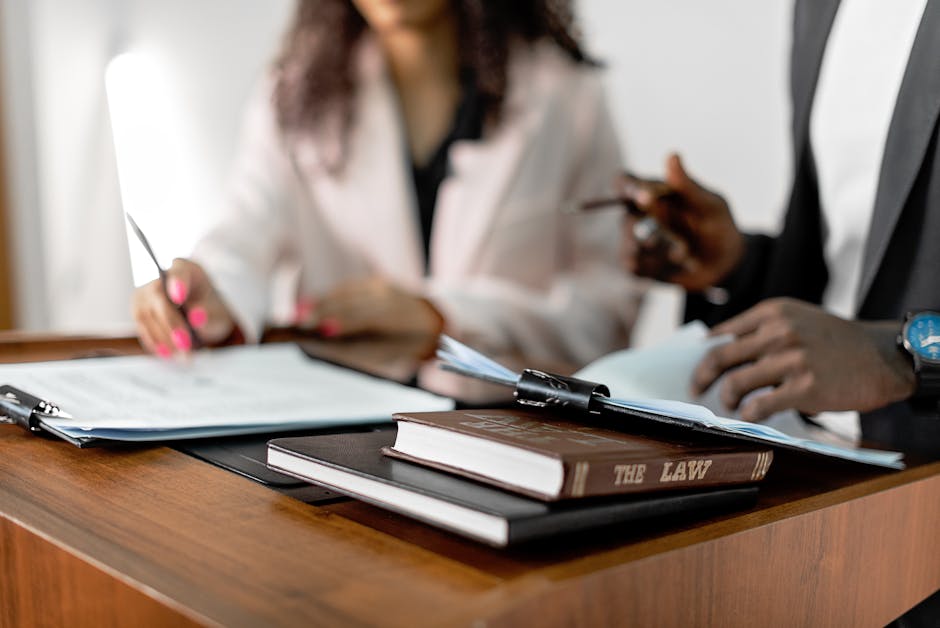 Photo from Pexels
Photo from Pexels
Originally Posted On: https://bippermedia.com/what-the-prosecutions-burden-of-proof-is-in-a-prostitution-case/
Every year, around 2,000 people are arrested for offenses related to prostitution in the state of Florida.
The State has the burden of proof in a prostitution case, and that burden includes proving the defendant’s involvement in the illegal activity. This includes not only providing sexual services for money, but also asking for them, paying for them, and promoting them (often referred to as “pimping”). That’s right; according to Florida law, if you hire a prostitute or try to hire a prostitute, you can be charged with prostitution.
Penalties for indulging in any form of prostitution can have devastating effects on one’s life, whether one is the prostitute, the client, or the intermediary.
In addition to the risk for arrest, hefty fines, and possibly jail time, there are other repercussions for indulging in paid sex. In the event that you are prosecuted and subsequently found guilty, you may face a number of consequences, some of which include damage to your personal relationships, including those with family and friends, and to your professional reputation, should your employer learn of the charges against you.
What is the Burden of Proof for Prostitution?
The prosecution must prove the defendant:
- Engaged in sexual penetration or other lewd behavior with another person in exchange for money
- Committed the offense knowingly
An act is considered “lewd” if it involves touching another person’s genitalia, buttocks, or female breasts with the purpose to stimulate or pleasure sexually.
What is the Burden of Proof for Solicitation?
The prosecution must show the following against a defendant accused of soliciting prostitution:
- The accused enticed or attempted to induce or provoke a victim to engage in sexual penetration or any indecent act with them for financial gain.
- The accused did this with a view toward engaging in sexual activity or other immoral acts in exchange for financial compensation.
There are two possible parties to a solicitation charge: the client (“John”) or the prostitute herself.
Offering or accepting payment for sexual favors is a common way to demonstrate the requisite “specific purpose” part of solicitation. In most cases, gestures alone won’t suffice to prove this component.
A Wider View of Prostitution
According to the Florida Statutes, it is against the law in the state of Florida to solicit a sex act for money, in addition to it being against the law to perform a sex act for money. In other words, the person who pays the prostitute as well as the prostitute themself may both be subject to criminal prosecution.
However, it must be remembered that these are not the only people who can be prosecuted for a prostitution related offense. Prostitution is also:
- Participating in or running a business that is associated to prostitution
- The act of offering or agreeing to secure another person for the purpose of engaging in sexual and lewd activities.
- The act of either providing a location for prostitution to take place or of permitting it to take place on one’s own property is considered prostitution.
- Providing assistance to a person in order to transport them to a location where prostitution will take place.
- Prostitution through soliciting, inciting, enticing, or procuring another individual to engage in the act
- Engaging in prostitution by residing, entering, or lingering in an area where it is taking place
- Participating in any activity that is related to prostitution in any way, including aiding and abetting it.
Possible Defenses
Entrapment
Entrapment is the legal defense that is used the most frequently, according to attorneys. In most cases, members of law enforcement will portray themselves to the public as agents or pimps for sex workers. They lure law-abiding individuals into their trap by urging them to indulge in prostitution.
Insufficient Evidence
Insufficient evidence is a defense that is used by attorneys in cases when there is a lack of evidence to demonstrate the prosecution’s claim that prostitution-related offenses were committed. They are unable to establish evidence that is sufficient to convict a person of prostitution-related offenses based on what they have produced.
Because there is no recorded agreement to participate in prostitution, according to the defense attorney for the defendant, there is no evidence that can be trusted.
Legal Impossibility
Cases of Legal impossibility: An attorney can demonstrate that the claimed actions do not meet the criteria for committing a crime. This defense is typically used by attorneys in situations in which the defendant’s sexual discussions take place via electronic media. This line of defense is used, for instance, by attorneys in situations in which an undercover agent acts as a fake minor offering a sex act.
Mistake
Mistake: If a person accidentally engages in a defined sexual activity but has no intention of doing so, they might not be found guilty of prostitution.
If You Are Arrested For a Prostitution Related Offense
It is important that you retain legal representation as soon as possible if you are arrested for an offense related to prostitution or if you are under investigation for participating in a prostitution network. Our attorneys at Hanlon Law have years of experience defending prostitution cases in Tampa, Florida.
Contact our legal team today to set up a free consultation, and hear how we will defend your case.
Hanlon Law
210 N Pierce St
Tampa, FL 33602
(813) 228-7095
https://www.criminalattorneytampa.net




